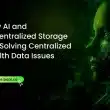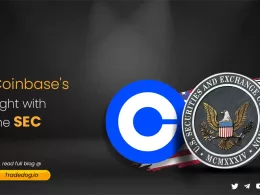Quick Links
Mastercard has recently launched its Crypto Credential service, aiming to streamline cryptocurrency transactions and eliminate user errors. This initiative tackles a major pain point for crypto users: the complex and lengthy alphanumeric blockchain addresses that can be a barrier to adoption, especially for new users.
What is Mastercard Crypto Credential?
The Mastercard Crypto Credential replaces complex blockchain addresses with user-friendly aliases. Traditionally, users have to send and verify long strings of characters and numbers, which can be a daunting task for new users and prone to errors. Mastercard Crypto Credential solves this problem by assigning a human-readable alias to each user, verified by Mastercard itself. This simplifies the transaction process and reduces the risk of accidentally sending funds to the wrong address.
How it Works
Mastercard Crypto Credential replaces the crypto addresses with user-friendly aliases. Exchanges participating in the pilot program will verify users according to Mastercard’s standards, and once verified, users will receive an alias to send and receive funds across all supported exchanges. Transactions will then be screened to ensure the recipient’s alias is valid and their wallet supports the specific digital asset and blockchain involved.
More Than Just Simplifying Addresses
While the user-friendly aliases are a major benefit, Mastercard Crypto Credential offers additional features:
- Increased Security: The system verifies that the recipient’s alias is valid and ensures their wallet supports the specific digital asset and blockchain being used. This helps prevent transactions from being sent to incompatible wallets, potentially leading to lost funds.
- Compliance with Regulations: Mastercard Crypto Credential adheres to the Travel Rule, a regulatory requirement for transparency in cross-border transactions. This helps to prevent illegal activities like money laundering.
- Simplified Transactions: By replacing complex addresses with aliases, Mastercard aims to make sending and receiving cryptocurrencies easier and less prone to errors.
- Future Plans: While currently focused on peer-to-peer (P2P) transactions, Mastercard plans to expand the service to encompass non-fungible tokens (NFTs), ticketing, and other blockchain-based solutions.
Pilot Program and Availability
The Mastercard Crypto Credential service is currently in a pilot phase, with the first live P2P transactions being conducted. Participating cryptocurrency exchanges include Bit2Me, Lirium, and Mercado Bitcoin. These exchanges span several countries in Latin America and Europe, including Argentina, Brazil, Chile, France, and Spain. A select group of users from these exchanges are the first to leverage Mastercard Crypto Credential on a first-come, first-served basis, with wider availability planned for over 7 million users in the coming months.
Community Response
The response to Mastercard’s Crypto Credential initiative has been positive, with industry experts highlighting its potential to improve user experience and encourage wider adoption of cryptocurrencies. However, some concerns regarding centralization have also been raised.
While Mastercard’s system simplifies transactions, it also introduces a degree of centralization. Unlike traditional decentralized blockchains, Mastercard acts as an intermediary, verifying identities and screening transactions. This raises concerns for some crypto users who value the decentralized nature of blockchain technology. Additionally, Mastercard has experienced data breaches in the past, leading some to question the security of storing sensitive user data.
Looking Ahead
Mastercard’s Crypto Credential service is the latest example of a traditional financial institution embracing cryptocurrency. This initiative follows Mastercard’s partnership with Gemini to launch a crypto rewards credit card and its acquisition of crypto security firm CipherTrace. These efforts highlight Mastercard’s commitment to providing secure and user-friendly crypto solutions.
Mastercard is not alone in its exploration of crypto space. Major players like Visa, PayPal, and Google are also forming partnerships and developing solutions to simplify crypto ownership and transactions. As the crypto market continues to evolve, we can expect to see more established financial institutions offering services that bridge the gap between traditional finance and the world of digital assets.









